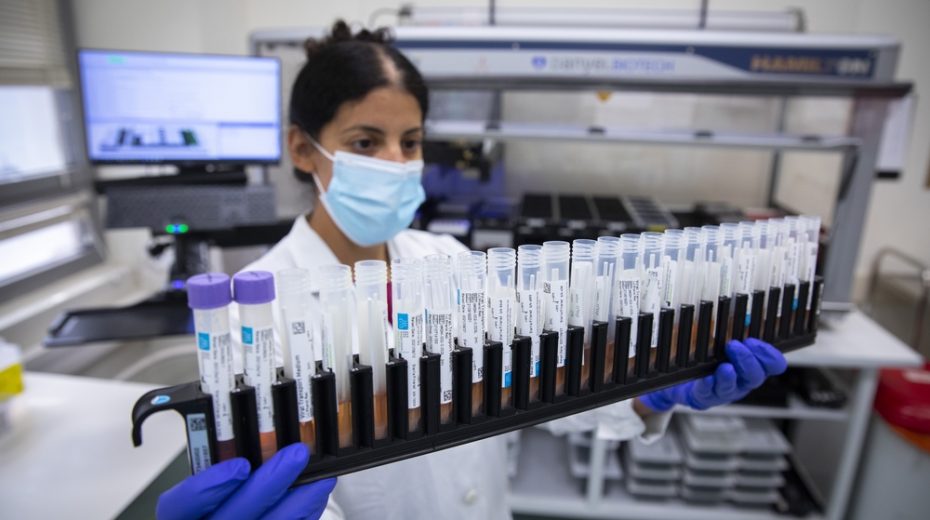All facetiousness aside, Israel’s coronavirus situation is looking increasingly precarious as thousands continue to travel abroad and bring new infections into the country upon their return. This week the Ministry of Health identified at least 12 cases of a new variant they are calling “Delta Plus,” all of whom were believed to have been infected while visiting the Caucasus country of Georgia.
Overall COVID-19 infection rates are also rising, going over 2% of administered tests yesterday for the first time since March.
On Sunday, 67,676 coronavirus tests were administered in Israel, and 1,398, or 2.07 percent, came back positive.
While the rising infection rate is of concern, the new government has stated that the number it’s looking at when decided whether or not to reimpose certain restrictions is the number of hospitalized Corona patients. That number, too, rose this week, topping 100 for the first time in months.
At press time, there are 108 Israelis hospitalized with serious cases of COVID-19. Twenty-five of those are listed in critical condition.
Most Israelis are not getting sick at all even when infected with COVID-19, so the government’s top priority is preventing the healthcare system from being overwhelmed. At the height of the pandemic, some 1,200 Israelis were hospitalized in serious condition and local hospitals were struggling to treat them. For now we are seeing just a fraction of those dangerous hospitalization rates, but the Delta variant, and presumably Delta Plus, is hyper-contagious, raising concerns that the number of people requiring hospitalization could at some point skyrocket.
Prime Minister Naftali Bennett continues to insist that the way to prevent this scenario is for the one million eligible Israelis who have thus far refused to be vaccinated to go get the jab. Bennett stressed that his primarily objective to keep the Israeli economy open, but that the public must do its part by wearing masks in close indoor spaces and vaccinating.
Ben Gurion Airport is also a problem. Bennett’s government is begging Israelis to stop flying abroad until the situation is under control. But as one person told Israel Today, even those who are inclined to heed the government’s warnings are still traveling because at this point they can’t refund their tickets and aren’t willing to simply lose their money.
The government is doing its best to deal with the situation without again closing Israel’s skies. According a new directive, travelers cannot be accompanied by non-travelers either upon departure or arrival at Ben Gurion. Furthermore, a number of countries have been added to the “red list,” which means anyone who visits them must quarantine upon return regardless of their vaccination status, and to the “forbidden list.” Israelis visiting the latter will receive hefty fines upon their return.















